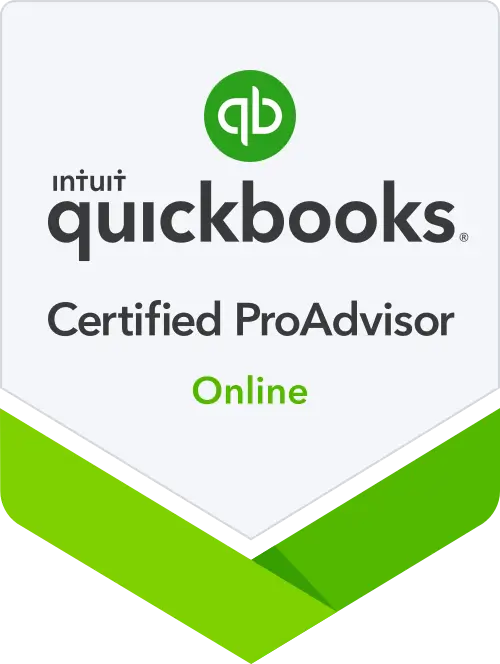In the world of electrical contracting, your skills and expertise as an electrician are undoubtedly your greatest assets. However, to truly succeed in the business, you need to wear many hats, and one of those is that of a meticulous bookkeeper. In this chapter, we’ll delve deeper into the significance of bookkeeping for electricians.
The Role of Bookkeeping for Electricians in the Financial Health of your Business
Bookkeeping is often seen as a tedious task, but it’s much more than just keeping financial records. It’s a window into the financial health of your business. Proper bookkeeping for electricians provides valuable insights such as:
- Profitability: It helps you determine how profitable your projects are, enabling you to focus on those that yield the highest returns.
- Cash Flow Management: Keeping tabs on income and expenses ensures that you have enough cash on hand to cover your operating costs and invest in growth.
- Tax Compliance: Accurate records are essential for filing taxes correctly and avoiding costly penalties.
- Budgeting and Planning: Detailed financial data allows you to create budgets and make informed decisions about expanding your business or investing in new equipment.
How Accurate Records Inform Decisions
Imagine a scenario where you’re considering expanding your electrical contracting business by taking on a major project. Accurate financial records provide the data needed to assess the feasibility of such a venture. You can calculate how much capital you have available, whether you need to secure financing, and what your expected return on investment will be.
Without this financial data, you’d be making decisions blindly, potentially risking your business’s stability. Effective bookkeeping for electricians empowers you to make informed choices that drive your electrical business forward.
The Consequences of Electricians Neglecting Their Bookkeeping
Neglecting bookkeeping can have dire consequences for your electrical contracting business. Some of the risks include:
Financial Mismanagement: Without a clear understanding of your income and expenses, you may struggle to pay bills, taxes, or even your employees.
- Cash Flow Problems: Poorly managed cash flow can lead to cash shortages making it difficult to invest in growth or handle unexpected expenses.
- Legal Troubles: Incorrectly filed taxes or non-compliance with tax regulations can result in legal issues and hefty fines.
- Missed Opportunities: Lack of financial insights can cause you to miss out on profitable projects or cost-saving opportunities.
Examples of Best Practices Regaring Bookkeeping for Electricians
We are going to take a look today at 3 ways Electricians can perfect their bookkeeping practices. Then, once you have had time to consider implementing these ideas, we can offer up even more solutions in our next post.
Separateing Business and Personal Finances
As an electrician turned business owner, you’ve made significant strides in your career. However, one common pitfall that many small business owners face is the commingling of personal and business finances. In this section, we’ll explore the importance of separating business and personal finances and provide practical steps to make the transition smoother. Here’s why it matters:
- Simplified Bookkeeping: When business and personal finances are intertwined, tracking expenses and income becomes a convoluted task. Separation simplifies bookkeeping by creating clear distinctions. Plus, if you’ve hired a bookkeeper for your business, it will take them less time to reconcile your account each month which will save you money if your bookkeeper charges by the hour.
- Tax Efficiency: Keeping personal and business finances separate is essential for accurate tax reporting. It ensures that deductions and expenses related to your business are properly accounted for.
- Legal Protection: Maintaining separation can protect your personal assets from business liabilities. In the event of legal issues or debt, your personal finances remain shielded.
Professionalism: Separation projects a professional image to clients, suppliers, and partners. It demonstrates that you take your business seriously and have a well-organized financial structure.
Strategies For Transitioning to Separating Business and Personal Finances
Transitioning from mingled finances to a clear separation requires careful planning and execution. Here are some strategies to consider:
Open Business Bank Account: Start by opening a dedicated business bank account. This will be used exclusively for all business-related transactions, including income and expenses.
Get a Business Credit Card: Apply for a business credit card that is separate from your personal credit card. This will help further distinguish between personal and business expenses.
Set Clear Boundaries: Educate yourself and your family about the separation. Ensure that personal funds are not used for business expenses and vice versa.
Consult with a Professional: Consider consulting with an accountant or financial advisor to ensure that your separation strategy aligns with your business structure and financial goals.
Interested in working together on your business?
Embracing Cloud-Based Accounting Software: Limitations of Traditional Bookkeeping Methods
In the digital age, traditional bookkeeping methods like manual spreadsheets or desktop software are becoming obsolete. For electricians looking to streamline their financial management, it’s time to embrace the power of cloud-based accounting software. Here are some of the limitations of staying with the traditional ways:
- Risk of Errors: Manual data entry is prone to errors, which can lead to inaccuracies in financial records.
- Lack of Accessibility: Desktop software restricts access to financial data to a single location, making it inconvenient for businesses on the move.
- Data Security Concerns: Storing financial data on a single device can pose security risks, especially if that device is lost or compromised.
- Limited Collaboration: Collaborating with bookkeepers, accountants, or team members is challenging with desktop software that lacks real-time accessibility.
Benefits of Cloud-Based Accounting Software
Cloud-based accounting software offers a host of advantages for electricians and small business owners:
- Accessibility: Access your financial data from anywhere with an internet connection. This is especially valuable for electricians who may be traveling between job sites.
- Real-Time Updates: Changes made in the cloud are instantly reflected in your financial records, providing real-time insights.
- Collaboration: Collaborate seamlessly with bookkeepers, accountants, and team members. Multiple users can access and update the data simultaneously.
- Data Security: Cloud-based software often includes robust security measures, such as data encryption and regular backups.
Conclusion
In this comprehensive exploration of the role of bookkeeping for electricians, we at Darwin Business Solutions have uncovered the vital importance of meticulous financial management in ensuring the success and stability of your electrical contracting business. From understanding the profitability of your projects to safeguarding against financial mismanagement and legal troubles, effective bookkeeping is undeniably a cornerstone of your business operations.
In Part 2 of our series, we’ll dive even deeper into the world of bookkeeping for electricians, providing you with additional valuable insights and practical tips to perfect your bookkeeping practices. Stay tuned as we continue our journey to empower you with the knowledge and tools you need to not only manage your finances but also drive your electrical business to new heights.




